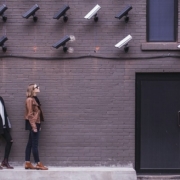Complete Guide to the Sydney Tax Regulations on Airbnb Earnings
- The best locations for Airbnb in Australia
- The Profitability of Investing in the Airbnb Market in Sydney
- The In-depth Sydney Airbnb Business Startup Guide: Facts, Figures, and How-to’s
Introduction
Are you considering renting out your property on Airbnb in Sydney? It’s essential to understand the tax regulations surrounding your earnings to ensure compliance with the law. This comprehensive guide will walk you through everything you need to know about the Sydney tax regulations on Airbnb earnings.

1. Understanding the Tax Implications of Airbnb Earnings in Sydney
As an Airbnb host in Sydney, you need to be aware of your tax obligations. The Australian Taxation Office (ATO) treats income earned through short-term rentals, such as Airbnb, as assessable income. This means that you are required to declare your earnings and pay taxes accordingly.
Useful links:
2. Registering for an Australian Business Number (ABN)
To operate as an Airbnb host in Sydney, it is advisable to obtain an Australian Business Number (ABN). While it is not mandatory for occasional and low-level hosting, having an ABN allows you to claim tax deductions and benefits related to your hosting activities.
3. Goods and Services Tax (GST) Requirements
It is important to understand the GST requirements for rental income. When you earn residential rent from platforms like Airbnb or Vrbo, you are not obligated to pay Goods and Services Tax (GST) on those amounts. The GST exemption applies to residential rent.
However, if you engage in an enterprise that involves renting out commercial residential premises, such as a commercial boarding house, different income tax and GST obligations may apply. It is important to note that merely providing additional services like breakfast or cleaning alongside the room rental does not automatically mean you are providing a ‘board’ or engaging in a separate business activity. Renting out a property itself typically does not qualify as a business activity in most cases.
Determining whether your rental activities qualify as a business requires careful consideration. Seeking advice from a qualified tax professional or consulting the Australian Taxation Office (ATO) is recommended. They can provide specific guidance based on your circumstances and help you understand the precise income tax and GST obligations related to renting out residential and commercial properties.

4. Income Tax Obligations
As an Airbnb host, you are responsible for reporting your rental income on your personal income tax return. You will need to accurately calculate and declare the income you receive from Airbnb bookings. Remember to keep all relevant records to support your tax return.
5. Deductible Expenses for Airbnb Hosts
There are various deductible expenses you may claim as an Airbnb host, such as property-related expenses (e.g., mortgage interest, property management fees), cleaning fees, maintenance costs, and advertising expenses. Keep detailed records of these expenses to substantiate your claims.
The extent to which you can claim expenses will vary based on two factors:
- The number of days you rent out the house or property during the year.
- The portion of the property that you have rented out, such as a room or the entire property.
These factors play a significant role in determining the proportion of expenses you can claim as deductions. It is important to carefully assess the rental duration and the specific portion of the property used for renting to accurately determine the eligible expenses for deduction purposes.
Income and deductions for renting out your home
6. Record-Keeping for Tax Purposes
Maintaining proper records is crucial for accurate tax reporting. Keep track of your rental income, expenses, and supporting documentation. This includes receipts, bank statements, booking records, and any other relevant paperwork. Well-organized records will make tax time much smoother.
7. Superannuation Contributions for Airbnb Income
As an Airbnb host, you are responsible for your own superannuation contributions. It is advisable to consult a financial advisor to determine the best way to manage your retirement savings and ensure you are meeting your obligations.
8. Capital Gains Tax (CGT) Considerations
If you rent out a property that is not your primary residence, you may be liable for Capital Gains Tax (CGT) when you sell it. It’s important to seek professional advice to understand the CGT implications and any exemptions or concessions that may apply.
9. Engaging an Accountant for Professional Advice
Navigating the complexities of tax regulations can be challenging. It is highly recommended to engage a qualified accountant specializing in property tax and Airbnb earnings. An accountant can provide personalized guidance, help you maximize deductions, and ensure compliance with Sydney tax regulations.
10. Penalties for Non-Compliance
Failure to comply with the tax regulations on Airbnb earnings in Sydney can result in penalties and legal consequences. It is essential to stay informed, keep accurate records, and fulfill your tax obligations promptly. By doing so, you can avoid unnecessary penalties and maintain good standing with the tax authorities.

11. Frequently Asked Questions (FAQs)
Do I need to report my Airbnb earnings if it’s my primary residence?
Yes, even if it’s your primary residence, you are still required to report your Airbnb earnings and fulfill your tax obligations accordingly.
Can I claim deductions for expenses related to my Airbnb property?
Yes, as an Airbnb host, you can claim various deductions for expenses such as mortgage interest, property management fees, cleaning fees, and maintenance costs. Keep detailed records and consult with an accountant for specific advice.
Is it necessary to obtain an Australian Business Number (ABN) for Airbnb hosting?
While it’s not mandatory for occasional and low-level hosting, having an ABN allows you to access certain tax benefits and claim deductions related to your Airbnb activities.
Do I need to pay Capital Gains Tax (CGT) when selling my Airbnb property?
If the property you rented out on Airbnb is not your primary residence, you may be liable for CGT when you sell it. Consult with a tax professional to understand the specific implications of your situation.
Conclusion
Understanding and complying with the tax regulations surrounding Airbnb earnings in Sydney is crucial for every host. By familiarizing yourself with your tax obligations, keeping accurate records, and seeking professional advice when needed, you can ensure smooth and lawful operations as an Airbnb host while optimizing your tax position.
Explore The Definitive Guide to Melbourne Airbnb Income Taxation.


















